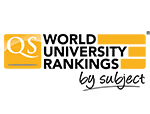Master of Communication Management Online
Flexible Pathways for Today’s Communication Leaders
Now more than ever, businesses need skilled leaders who can effectively communicate across digital media channels and remain agile to meet new demands.
USC Annenberg has a long history of preparing emerging leaders like you for high-level roles in every industry. Our online Master of Communication Management degree is designed to help you advance your skills and remain competitive in a dynamic field — whether you’ve just graduated, are building your career or are a seasoned veteran.
Start Your Journey
Next Start Date:
September 8, 2025
Call:
1-888-836-4681
Schedule an appointment with an advisor
At a Glance
Focus Areas
Marketing Communication:
Strategic and Organizational Communication:
Communication Management Generalist:
Curriculum
USC Annenberg has designed the online MCM curriculum to produce multi-disciplined experts in communication who can distinguish themselves from the competition in an increasingly crowded job marketplace.
As an online MCM student, you’ll gain fundamental knowledge by surveying core communication concepts. From there, you’ll have the option to pursue a communication management generalist or tailor your MCM to a specific aspect of communication through one of our three focus areas. Finally, you’ll put everything you’ve learned into practice through an applied capstone project.
Our curriculum emphasizes learning by doing, and the result is a well-rounded education that prepares you to thrive in any industry as a modern communication leader.
Core Courses
Organizations are created through the process of communication, whether in the form of verbal agreements, written policies or enacted behaviors. As a result, organizational communication is highly interdisciplinary. It is inextricably linked to management, sociology, psychology and organizational behavior.
Managing Communication is about the process of understanding the systems, structures and processes that are integral to creating and maintaining organizations. This survey course will work through a model of organizational design to touch on a wide variety of the macro-level areas of the field of organizational communication, including the organizational structure, partnerships, networks, teams, culture and reward systems.
Throughout this course, you will learn how to think critically about research by asking good questions and applying rigorous methods and models to data. You will also practice using research to answer business questions. As industries become increasingly competitive, organizations are relying more and more on data to make more informed decisions. This reality requires individuals who understand not only how to interpret data, but how research can be designed to optimize the quality of research findings.
This course has been designed to provide you with grounding in the overall process of research design, to build your competence as a communicator of complex research findings, as well as to help you gain practical skills in some of the most common research methods.You will have the opportunity to learn course concepts through the development of a marketing research project for a client. Throughout the semester you will work with a team and use research to answer your client’s questions and provide recommendations. The final product will be presented to your clients.
An understanding of research methods is essential to successfully navigate the current professional business world. In this course we consider research from both a qualitative and quantitative perspective.
The course is designed around the principle that the best way to learn is via doing. Each week students apply the instructional materials to a range of problems simulating real-world scenarios. The course presents a range of methodological approaches, and multiple opportunities are provided to tailor the assignments to student personal interests.
In this course you will engage in detailed research-orientated examination of a topic. Topic selection is guided via a discussion with your instructor to design an achievable research goal that fulfills the goals of the program and your goals as an individual.
This course serves as the capstone experience of the program and as such is oriented to allow you to produce your best work while demonstrating what you have learned in the program. Due to the individually tailored and student-oriented research projects, each student engages in very different work, which results in very different final deliverables.
Capstone
General Courses
Communication in Work Settings focuses on internal communication topics (e, g., manager-employee and peer communication). Equal emphasis is placed on theoretical understanding and practical applications.
A strong theoretical foundation is required to ensure that decisions about communication practices are based on sound research rather than popularized myths. That is, how is a concept studied by academics and why do we want to build/test theories about the concept? Concomitantly, how is the concept treated by practitioners and consultants? Your (future) employers are counting on you to be able to collect and evaluate the most recent research about topics that they are concerned about. Topics covered include: foundations of organizational communication and competencies; leadership, delegation and coaching; destructive workplace communication – workplace bullying and incivility; employee engagement and building trust; emotions in the workplace; organizational culture.
The context of the class is the organization and the role communication plays in developing and implementing business strategy. Students assess and make recommendations on live organizational change projects. Course pulls from corporate case studies as well as current theory.
Topics include business strategy, the role of the change agent, change models and their application, building ad-free brand communities, power, organizational politics and leadership. Students practice using change management tools and techniques while assessing organizational change efforts from both a theoretical and practical perspective. This course prepares students to lead change within the reality of today’s modern organizations.
Successful creative campaigns communicate consumer benefits in simple, unexpected and compelling ways. This course provides an overview and application of marketing communication principles and strategies. It focuses on key concepts and frameworks for creating and managing an integrated marketing communication plan.
Topics will include situation analysis, consumer research, branding, campaign objectives, creative strategy, promotion strategy, media strategy, and campaign management and evaluation. Special attention will be given to social media and other current trends and innovations.
In an increasingly saturated digital environment, with shifting patterns of media consumption and new modes of communication, today’s marketing and communication practitioners must possess an understanding of these forces and be able to apply communication constructs in new and innovative ways.
This course is designed to provide students with critical perspectives about new media technologies, social marketing communication and consumer behaviors online. In addition to evaluating theories and observing brand interactions online, students are provided with opportunities to gain practical, hands-on experience in creating online elements as part of digital marketing campaigns.
Markets are becoming more and more intertwined, and it has become imperative for all entities to analyze their consumers and their competitive landscape in global terms. The ability to effectively do so provides a key competitive advantage to create, capture and deliver value in an evolving global landscape.
This course provides participants analytical tools to identify the challenges and opportunities in the global marketplace. The analysis draws on relevant interdisciplinary theoretical frameworks as well as practical applications from case studies to bridge the gap between theory and practice utilizing lectures, articles and industry reports.
Throughout this course, you will learn how to think critically about research by asking good questions and applying rigorous methods and models to data. You will also practice using research to answer business questions. As industries become increasingly competitive, organizations are relying more and more on data to make more informed decisions. This reality requires individuals who understand not only how to interpret data, but how research can be designed to optimize the quality of research findings.
This course has been designed to provide you with grounding in the overall process of research design, to build your competence as a communicator of complex research findings, as well as to help you gain practical skills in some of the most common research methods.You will have the opportunity to learn course concepts through the development of a marketing research project for a client. Throughout the semester you will work with a team and use research to answer your client’s questions and provide recommendations. The final product will be presented to your clients.
Practical and theoretical survey of the public relations profession as it is currently practiced, focusing on its key role in today's information-based society. The course provides a social/contextual backdrop for further study of the field. Emphasis is places on strategic problem solving skills rather than tactical execution.
In this course you will learn to paraphrase the dynamic changes the public relations profession currently experiences and include your prediction regarding the near future of the profession, explain the meaning of strategy in the public relations context; develop and illustrate an analysis of current news events, utilizing critical thinking; deconstruction and present a campaign plan by applying strategic planning principles; construct and present a campaign plan that is based on research, strategy and actionable insights.
Specialized writing for persuasive and strategic communication contexts. Intensive focus on public relations writing for print, online, broadcast and social media. Through in-class assignments and homework, students will learn to organize and plan their writing both with and without deadline pressure. Some assignments will cover the essentials of news and the basic building blocks of providing information; others will include elements designed to provide insight for specific writing styles for print, online and broadcast media, as well as copy for brochures, newsletters and social media.
This course is designed to provide students with practical writing experience. Special emphasis is placed on composing materials for a variety of audiences and an array of assignments. Through writing drills—many of them timed, to replicate the pace of today’s business world—and evaluation of one another’s work, students will learn to write more effectively; that is, to ensure that the intended audience not only pays attention but is persuaded to take action, whether it be to vote for a candidate, donate to a cause, purchase a product or foster understanding of an issue.
Communication Management Generalist Courses
Admission Requirements
You must meet the following criteria to qualify for the USC Annenberg online MCM program. Contact a member of our enrollment team for specific guidance.
- Submit the USC graduate school application along with a $90 application fee.
- Received a bachelor’s degree from a regionally accredited institution.
- Graduated from college with a 3.0 grade point average.
- No GRE is required.
Rankings and Accreditations


